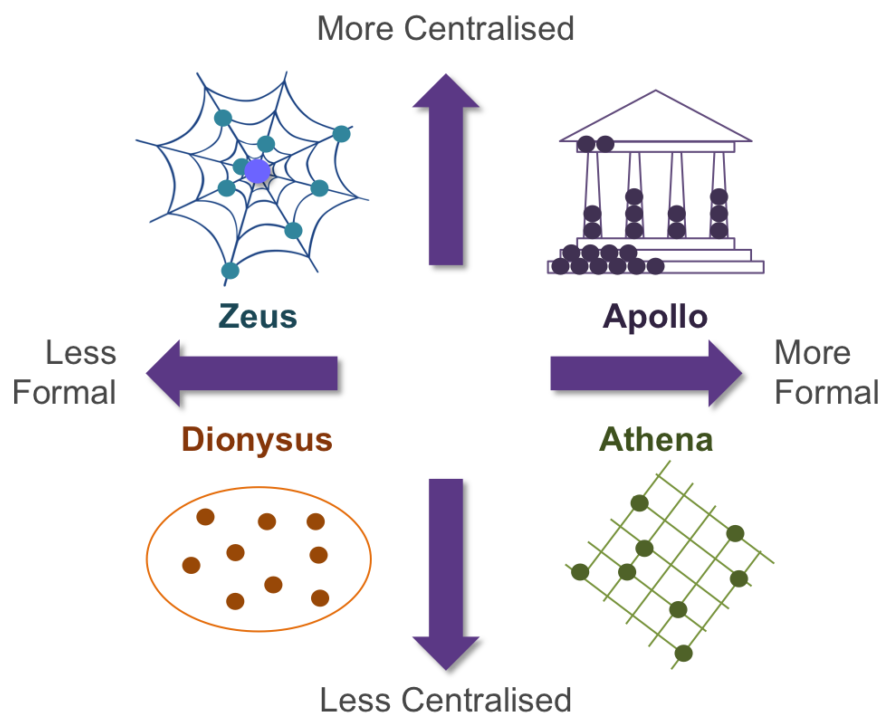Organizational design is the overall configuration of structural components that defines jobs, groupings of jobs, the hierarchy, patterns of authority, approaches to co-ordination and line-staff differentiation into a single and unified organizational system. Consider, for example, the differences in organizational design that might exist between a computer manufacturer and university. Since the computer manufacturer has to respond to frequent technological breakthroughs and changes in its competitive environment, it is likely to have a relatively flat and decentralized design whereas the university has a more stable environment and is less affected by technology. Therefore, it has a more centralized structure with numerous rules and regulations.… Read the rest
Organizational Behavior Concepts
Four Typologies of Organizational Culture
In organizational culture there are many kind of categorization and typologies have been explained by different scholars of culture. Theses typologies give and over view about the different cultures which exist in organizations. Handy (1985) was the person who discussed how different cultures have their existence in different organizations and within the same organization many diverse cultures can coexist. There are very few organizations exist who have a single culture exists in them. Every individual have its own culture within him and have his own specific personality and culture along with organizational culture. Organizational culture and structure of any organization are connected with each other.… Read the rest
Organizational Behavior – Definition and Concepts
According to Keith Davis “organizational behavior is the study and application of knowledge about how people act within organizations. It is human tool for the human benefit. It applies broadly to behavior of people in all type of organization such as business, government, schools, etc. it helps people, structure, technology, and the external environment blend together in to an effective operative system”.
Stephen Robins defines organizational behavior as a “field of study that investigates the impact that individuals, groups, and structure have an organization for the purpose of applying such knowledge improving an organization’s effectiveness“.
There are many definitions about organizational behavior; every definition must include three important features, (1) organizational behavior is the study of human behavior, (2) study about behavior in organisations and (3) knowledge about human behavior would be useful in improving an organisation’s effectiveness.… Read the rest
Relationship between Organization Climate and Organizational Behavior Models
Autocratic Model: The autocratic model of organizational behavior creates a climate in which the feelings of the workers are suppressed and they have to just be obedient and tolerative with the autocratic behavior of the employer. The personal relationship between the employer and the employee is not up to the mark. The labor turnover will be considerable when there is high dissatisfaction of the employees with their boss since they have no other alternative except to leave the job. In case of bottleneck in production or marketing, the employees simply keep mum and they never come out with suggestions for solving the problem.… Read the rest

